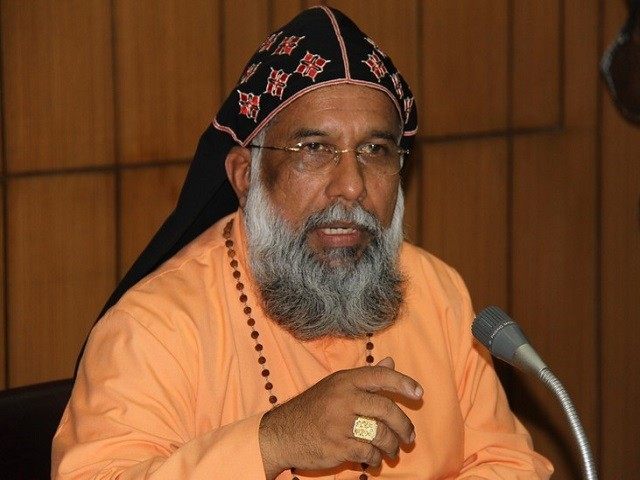The president of the Indian conference of Catholic bishops, Cardinal Baselios Cleemis, has insisted that the Indian government take its responsibility seriously to bring to justice the criminals who raped an elderly nun and assaulted several others. “I ask the authorities to guarantee that justice is done,” he said.
Earlier this week several men forced their way into the “Jesus and Mary” convent in Ranagath, in the State of West Bengal, raping the 72-year-old superior and beating three elderly sisters. The delinquents went on to break into the tabernacle of the convent’s chapel, profaning the consecrated hosts.
After visiting the victims of the assault who are recovering in the hospital, Cardinal Cleemis said: “The sisters have forgiven the criminals, but justice must be done to insure that similar acts don’t happen in the future.” He also underscored that “the country has a responsibility toward all human beings and its priority should be to protect its citizens,” a principle, he said, that goes “beyond the religion” of the person.
Just prior to that visit, the Cardinal had stated: “The country has a responsibility towards all of us – every human being – and not just cows,” he said. Cleemis was referring to the fact that cows are considered sacred in Hinduism, and therefore protected, whereas human beings are often not.
Last Tuesday in fact, the parliament of Haryana state in northern India banned the slaughter of cows and the sale of beef, imposing a fine of up to 100,000 rupees as well as a prison term ranging from three to ten years for killing the sacred animal.
Indian Christians have expressed fear that a rise in Hindu nationalism under the leadership of Prime Minister Narendra Modi may be responsible for the rash of anti-Christian violence in the country.
The Modi government, with its strong ties to the Hindu fundamentalist group RSS, has come under fire for its hostility toward religious minorities, for instance the attempt to cancel Christmas and the denial of visas to Vatican officials. Under Modi’s regime, anti-Christian violence has spread throughout the country, and many accuse the government of apathy and inaction, if not tacit support of the aggression.
The recent convent attack in West Bengal is only the latest in a spate of anti-Christian violence in India. In February, vandals profaned a statue of Our Lady of Lourdes in a village parish in the western Indian state of Goa. In the state of Kerala, in south India, a Christian cemetery in the district of Pathanamthitta was vandalized, with graves and tombstones smashed on two consecutive days and graffiti scrawled across the cemetery wall.
In Mangalore, in the state of Karnataka, in central India, assailants hurled a volley of stones at a Catholic prayer hall on the outskirts of the city, breaking its windows. According to local Christians, the anti-Christian violence is meant “to create panic and insecurity in society.”
According to a forum of Christian NGOs, “the attacks and the frequent acts of vandalism against Christian targets in different parts of the country are worrisome.” Most distressing is the seeming apathy of the ruling Hindu government, which, in theory, should “have the task of stopping the violence, ensuring peace and harmony in society, and protecting the rule of law and freedom of religion.”
Earlier this month, India banned the broadcast of a BBC documentary about the deadly gang rape of a young woman in 2012.
British filmmaker Leslee Udwin directed the film India’s Daughter, made for the BBC and India’s NDTV. It deals with the rape and murder of a 23-year-old physiotherapy student aboard a bus in New Delhi. The case caused horror and drew attention to attitudes toward women in India.
Follow Thomas D. Williams on Twitter @tdwilliamsrome

COMMENTS
Please let us know if you're having issues with commenting.